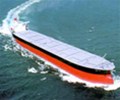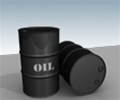Additional war risk cover levied by insurers for Hormuz transit pushes up freight rates for oil refiners

India’s oil refiners sourcing crude from conflict-prone West Asia, are facing freight increases of as much as $300,000 per day, after global marine insurers imposed an additional war risk premium of 0.35 per cent to 0.40 per cent of the value of the ship, for every transit through the Strait of Hormuz – the world’s busiest oil shipping lane – in the wake of recent attacks on oil tankers.
The freight rates for an Arabian Gulf to India run for a modern Suezmaz tanker or a very large gas carrier (VLGC) have gone up by $150,000 to $300,000 per day because of the additional war risk premium on the ship’s hull and machinery levied by underwriters, an executive with an Indian shipping company said. The extra war risk premium for a modern very large crude carrier or VLCC will be much more and the freight rates will be higher to that extent, he said.
The additional war risk premium is levied on ships by insurers for every transit through the Strait of Hormuz – the only channel for ships to enter and exit the Persian Gulf – carrying crude oil for global refiners.
India imported 84 per cent of its crude requirement in FY19 and two of every three barrels were sourced from suppliers in West Asia, according to government data.
For a spot voyage, the ship-owner can price the extra money spent on war risk cover in the freight rate or absorb it without passing it on to the customer – this would be a commercial call taken by the fleet owner, depending on the demand and supply scenario.
“Oil refiners have started asking ship-owners to quote an all-inclusive rate while finalising spot charters,” an executive with another shipping firm said. Ship-owners are passing on the extra spend to customers. “Why should we absorb. My earnings will go down. Besides, it’s a global impact. All ships passing through the Hormuz Strait have to pay the extra premium so pass-through is possible,” he said.
For a time-charter contract that is already running, the ship-owner will have to pay the extra premium first and then get it reimbursed from the charterer, after submitting documentary evidence.
“There is a Chevron war risk clause in every charter party, which says that any additional war risk premium during the currency of the voyage is to be borne by the charterer. At the time of chartering, it is on the ship-owner’s account, but during the currency of the voyage, any increase in premium, the charterers are liable to pay,” he said.
Ship-owners are also passing on the extra war risk premium to the charterers, asking them to reimburse it on time charter contracts.
“Now that we are doing all the voyages with this additional premium, we have already sent mails to charterers (oil refiners) on the issue. We have not received the invoices from insurers, but once we get the invoices, we will submit it to the charterers and ask them to pay. Under the charter party clauses, they are liable to pay,” one of the shipping company executives said.
Oil refiners say that they will reimburse the extra premium to ship-owners on submission of documentary evidence, an official with one of the state-run refiners said.
Source: The Hindu Business Line

 Hellenic Shipping News Worldwide Hellenic Shipping News Worldwide, Online Daily Newspaper on Hellenic and International Shipping
Hellenic Shipping News Worldwide Hellenic Shipping News Worldwide, Online Daily Newspaper on Hellenic and International Shipping





















 PG-Software
PG-Software